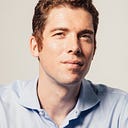Member-only story
End Times
A Brief Guide to the End of the World
Humanity faces existential peril as never before. But whether or not we go extinct is up to us.
Asteroids, supervolcanoes, nuclear war, climate change, engineered viruses, artificial intelligence, and even aliens — the end may be closer than you think. For the next two weeks, OneZero will be featuring essays drawn from editor Bryan Walsh’s forthcoming book End Times: A Brief Guide to the End of the World, which hits shelves on August 27 and is available for pre-order now, as well as pieces by other experts in the burgeoning field of existential risk. But we’re not helpless. It’s up to us to postpone the apocalypse.
 If you suspect the world is falling apart, you’re not alone. In a 2012 poll by Reuters covering more than 20 countries, 15% of respondents predicted that the world would end in their lifetimes. A 2015 survey of Americans, British, Canadians, and Australians found that a majority rated the risk of our way of life ending within the next one hundred years at 50% or greater, while a quarter believed humanity had a better than even chance of being wiped out altogether over that time frame. In 2018, a UN scientific panel reported that the world had just 12 years to sharply reduce carbon emissions or risk a global catastrophe. Young people…
If you suspect the world is falling apart, you’re not alone. In a 2012 poll by Reuters covering more than 20 countries, 15% of respondents predicted that the world would end in their lifetimes. A 2015 survey of Americans, British, Canadians, and Australians found that a majority rated the risk of our way of life ending within the next one hundred years at 50% or greater, while a quarter believed humanity had a better than even chance of being wiped out altogether over that time frame. In 2018, a UN scientific panel reported that the world had just 12 years to sharply reduce carbon emissions or risk a global catastrophe. Young people…

